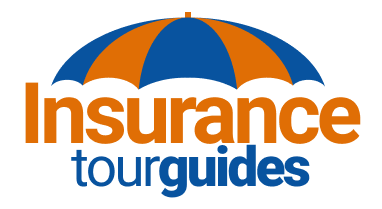Definitions of Insurance
Insurance doesn’t have to feel like a foreign language. At Insurance Tour Guides, we believe understanding common terms is the first step to making informed decisions. This glossary is designed to simplify the jargon and help you navigate policies with confidence. Whether you’re new to insurance or just need a quick refresher, these definitions will guide you through the basics.

Premium
The amount you pay, usually monthly or annually, to keep your insurance policy active. Think of it as your membership fee for coverage.
Deductible
The amount you’re responsible for paying out of pocket before your insurance kicks in to cover a claim.
Claim
A formal request you make to your insurance company to cover a loss or event outlined in your policy.
Coverage
The specific protections your insurance policy provides, including what risks or losses the insurer will pay for.
Exclusions
Items or events that are not covered by your policy. These are detailed in the policy document, so it’s important to read them carefully.
Policy
The official contract between you and your insurance company, outlining the terms, coverage, and conditions of your insurance.
Beneficiary
The person or entity designated to receive insurance benefits, often used in life insurance policies.
Liability
Your legal responsibility for causing damage or harm to another person or their property. Liability coverage helps pay for these costs.
Out-of-Pocket Maximum
The most you’ll have to pay for covered healthcare services in a year. After you hit this limit, your insurance covers 100% of additional costs.
Rider
An optional add-on to your insurance policy that provides extra coverage for specific items or circumstances.
Underwriting
The process insurance companies use to evaluate risk and determine your premium and coverage eligibility.

Sign Up Today
Sign up today and start receiving exclusive offers only for our dedicated members who want to learn more about all types of insurance.
